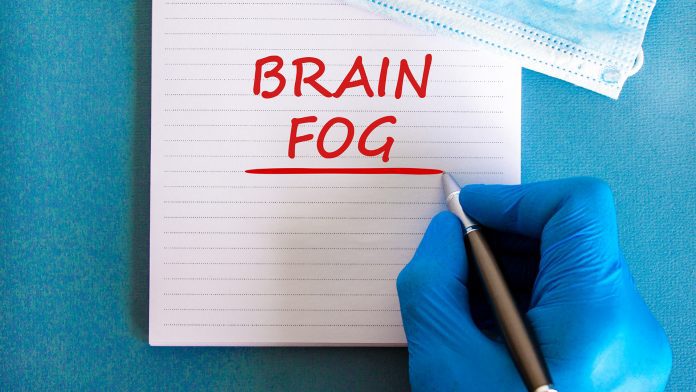
A recent study from US researchers has potentially uncovered the cause of COVID brain fog and may help identify treatments.
Among the myriad of symptoms observed in individuals recuperating from a COVID infection, memory loss and difficulty learning have emerged as prominent features.
Referred to colloquially as ‘brain fog,’ these cognitive impairments have been a puzzling aspect of the aftermath of COVID infections.
Shedding light on this enigma, researchers from the University of Illinois Chicago have uncovered a crucial mechanism underlying neurological issues in mice infected with SARS-CoV-2, the virus responsible for COVID.
The blood-brain barrier’s role
Central to their investigation was the blood-brain barrier, a critical defence mechanism safeguarding the brain from potentially harmful substances circulating in the bloodstream.
Typically, this barrier ensures the brain’s protection, but in infected mice, researchers noted compromised blood-brain barrier vessels, coinciding with memory and learning impairments akin to brain fog.
Delving deeper, the research team scrutinised the genetic alterations in the blood vessels of infected mice, pinpointing a significant reduction in the Wnt/beta-catenin signalling pathway.
This pathway, crucial for maintaining blood-brain barrier integrity and shielding the brain from harm, appeared to be suppressed in infected subjects.
Promising treatment option for COVID
In a groundbreaking move, researchers explored the therapeutic potential of gene therapy targeting the Wnt/beta-catenin pathway to mitigate brain damage in infected mice.
Encouragingly, this intervention yielded positive outcomes, manifesting in reduced blood-brain barrier leakage, diminished immune cell infiltration, and notable enhancements in learning and memory functions.
Given that advancing age is a risk factor for cognitive decline in COVID patients, the study prioritised older mice with mild infections, mirroring prevalent scenarios in human populations post-vaccination. Even mild infections, the researchers emphasised, could induce cognitive impairment.
Future scope of research
While acknowledging the considerable distance remaining to translate these findings into therapeutic interventions for COVID brain fog in humans, the study marks a pivotal stride toward that goal.
Dr Sarah Lutz, the lead researcher, underscored the significance of unravelling molecular mechanisms underlying disease, advocating for bolstered blood-brain barrier integrity as a potential avenue to mitigate COVID complications.
Dr Jalees Rehman, co-author and head of the UIC Department of Biochemistry and Molecular Genetics, underscored the imperative for intensified research on respiratory infections’ impact on the brain.
He emphasised the prospect of developing targeted therapies to mitigate brain and organ damage stemming from infection-induced inflammation.
The study highlights a critical facet of COVID pathology, offering insights into potential therapeutic strategies to alleviate post-infection cognitive impairments, thus advancing our understanding and management of this multifaceted disease.









